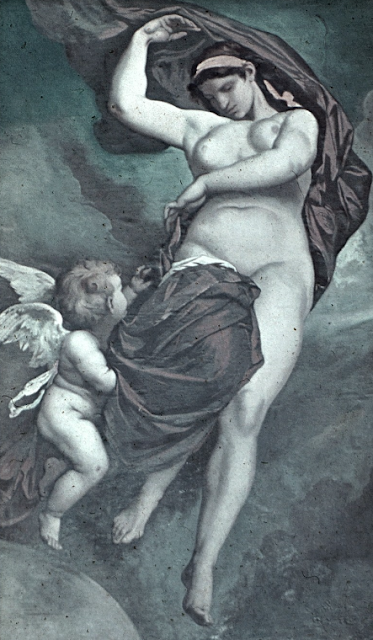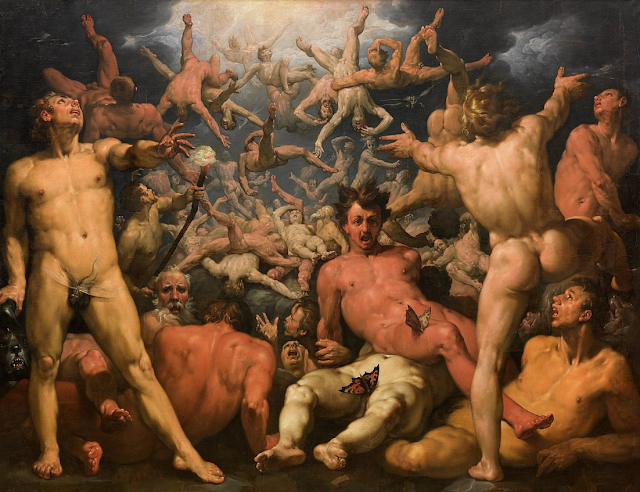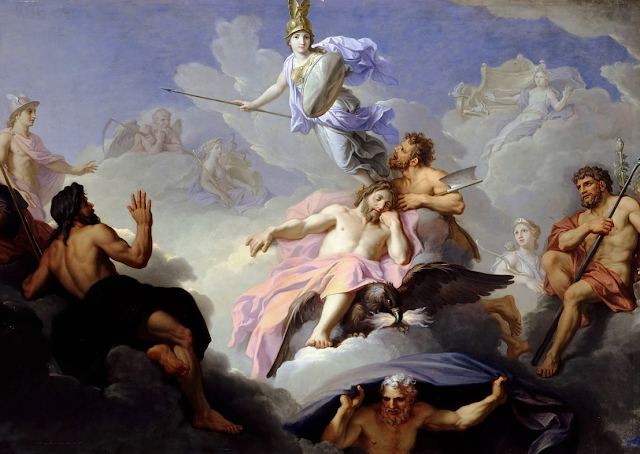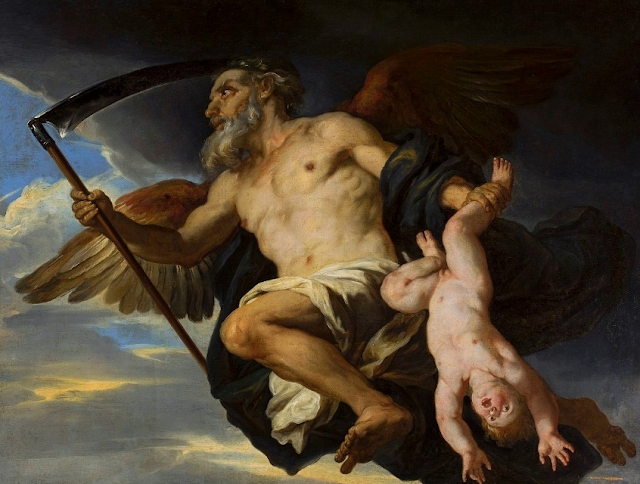19節 ゼウス Zeus
Jupiter and Thetis
オリュンポス十二神 Twelve
Olympians
ハートレイク・ホテル Heartlake Grand Hotel 2015年(平成27年)
ハートレイク・ホテル Heartlake Grand Hotel 2015年(平成27年)
ハートレイク・ホテル Heartlake Grand Hotel 2015年(平成27年)
ハートレイク・ホテル Heartlake Grand Hotel 2015年(平成27年)
ハートレイク・ホテル Heartlake Grand Hotel 2015年(平成27年)
ハートレイク・ホテル Heartlake Grand Hotel 2015年(平成27年)
ハートレイク・ホテル Heartlake Grand Hotel 2015年(平成27年)
ぴょん Pyon she-cat
ビートルズ The
Beatles
1962年(昭和37年)(9<10歳)(小3<4)
小学4年生のNorimaki Sembeeにも、ビートルズの曲のセンスの良さが分かり、図工の授業中に、
♪It's
been a hard day's night And I've been working like a dog♪
と口ずさみながら、作業をしていると、担任の先生に叱られたのを、覚えています。
「ビートルズ物語?」の挿絵より模倣 中学二年生時?
中学二年生時の美術の授業での版画
オリュンポス山 Mount Olympus
A statue of Zeus in a drawing.
ゼウス Zeus (ユピテル Jupiter)
ゼウスZeusは古代ギリシアの宗教ancient Greek religionにおける空skyと雷の神thunder
godであり、オリュンポス山の神々the gods of Mount Olympusの王kingとして支配rulesしている。
Zeus is the sky and thunder god in ancient
Greek religion, who rules as king of the gods of Mount Olympus.
彼の名前nameは、ゼウスZeusのローマの同等神Roman equivalentのユピテルJupiterの最初の要素first
elementと同族cognateである。
His name is cognate with the first element of his Roman equivalent Jupiter.
クロノスCronusに石stoneを包んだおくるみを贈呈するレアRhea
Rhea presenting Cronus with the stone wrapped
in swaddling bands
ゼウスZeusはクロノスCronusとレアRheaの子供childで、生まれてくる兄弟の末っ子the youngest of his siblingsだった。
Zeus is the child of Cronus and Rhea, the
youngest of his siblings to be born.
ヘラHeraの化粧makeupに仕えるカリテスCharites
ヘパイストスHephaestusに情事を発見されたアプロディテAphroditeとアレスAres
エイレイテュイア Eileithyia
ゼウスZeusの鷲eagleに餌を与えるヘベHebe
ゼウスZeusの雷を鍛えるヘパイストスHephaestus
ほとんどの伝承traditionsでは、ゼウスZeusはヘラHeraと結婚marriedしており、ゼウスZeusは通常、アレスAres、エイレイテュイアEileithyia、ヘベHebe、ヘパイストスHephaestusの父親fatherであると言われている。
In most traditions, he is married to Hera, by
whom he is usually said to have fathered Ares, Eileithyia, Hebe, and
Hephaestus.
ドドナ Dodona
ドドナの神託oracle of Dodonaで、ゼウスZeusの配偶者consortはディオネDioneであると言われ、イリアスIliad
(ホメロスHomer)はゼウスZeusがアプロディテAphroditeの父fatherであると述べている。
At the oracle of Dodona, his consort was said
to be Dione, by whom the Iliad states that he fathered Aphrodite.
An ancient depiction of a winged goddess who
may be Metis.
アテナの誕生 Birth of Athena
神統記Theogonyによると、ゼウスZeusの最初の妻first wifeはメティスMetisであり、彼にはアテナAthenaがいた。
According to the Theogony, Zeus' first wife
was Metis, by whom he had Athena.
A statue of Zeus in a drawing.
ゼウスZeusは神々の長chief of the godsであったすべての父all
fatherとして尊敬respectedされ、他の人々に役割を割り当てたassigned roles。
He was respected as an all father who was
chief of the gods and assigned roles to the others:
雷 thunderbolt
鷲 eagle
雄牛 bull
樫 oak
ゼウスZeusの象徴symbolsは雷thunderbolt、鷲eagle、雄牛bull、樫oakである。
Zeus' symbols are the thunderbolt, eagle,
bull, and oak.
ヘシオドス Hesiod
ガイア Gaea (大地 the
Earth)
Uranus
and the Dance of the Stars
The
Mutilation of Uranus by Saturn (Cronus)
ヘシオドスHesiodの神統記Theogony(紀元前730年頃~紀元前700年頃)では、クロノスCronusは父fatherウラノスUranus(空Sky)を去勢castratingした後、宇宙cosmosの最高支配者supreme rulerとなり、姉妹sisterのレアRheaと結婚wedsし、3人の娘three daughtersと3人の息子three sons、ヘスティアHestia、デメテルDemeter、ヘラHera、ハデスHades、ポセイドンPoseidon、そして最後に6人兄弟の末っ子the youngest of the sixである 「賢いwise」 ゼウスZeusをもうけた。
In Hesiod's Theogony (c. 730 – 700 BC),
Cronus, after castrating his father Uranus, becomes the supreme ruler of the
cosmos, and weds his sister Rhea, by whom he begets three daughters and three
sons: Hestia, Demeter, Hera, Hades, Poseidon, and lastly, "wise"
Zeus, the youngest of the six.
Cronus
devouring one of his children
クロノスCronusは両親parentsのガイアGaea(地球Earth)とウラノスUranus(空Sky)から、自分の子供his own childrenの一人がいつの日か父親を打倒overthrew
his fatherしたときに彼を打倒overthrow himする運命にあるという預言prophecyを受けreceived、彼らが生まれるとすぐにそれぞれの子供を飲み込んだswallows each child。
He swallows each child as soon as they are
born, having received a prophecy from his parents, Gaia and Uranus, that one of
his own children is destined to one day overthrow him as he overthrew his
father.
レア Rhea
これによりレアRheaは 「絶え間ない悲しみunceasing grief」 を抱き、6人目の子供her sixth childゼウスZeusを妊娠pregnantすると、両親parentsのガイアGaea(地球Earth)とウラノスUranus(空Sky)に近づき、子供を救いsave her child、クロノスCronusに報復retributionをもたらす計画を模索seeking
a planする。
This causes Rhea "unceasing grief",
and upon becoming pregnant with her sixth child, Zeus, she approaches her
parents, Gaia and Uranus, seeking a plan to save her child and bring
retribution to Cronus.
クレタ島 Crete
両親の指示parents' instructionsに従い、レアRheaはクレタ島CreteのリュクトスLyctusに向かい、そこでゼウスZeusを出産し、生まれたばかりの子供newborn
childをガイアGaea(地球Earth)に引き渡して育て、ガイアGaea(地球Earth)は彼をアイガイオン山Mount Aegaeonの洞窟caveに連れて行く。
Following her parents' instructions, she
travels to Lyctus in Crete, where she gives birth to Zeus, handing the newborn
child over to Gaia for her to raise, and Gaia takes him to a cave on Mount
Aegaeon.
クロノスCronusに石stoneを包んだおくるみを贈呈するレアRhea
Rhea presenting Cronus with the stone wrapped
in swaddling bands
レアRheaはその後、クロノスCronusに子供の代わりとしてin
the place of a child、ふわふわの服に包まれた石a stone wrapped in swaddling
clothesを渡し、それが自分の息子ではないit isn't his sonことに気付かずにすぐに飲み込んだpromptly
swallows。
Rhea then gives to Cronus, in the place of a
child, a stone wrapped in swaddling clothes, which he promptly swallows,
unaware that it isn't his son.
クレタ島 Crete
ディオドロス・シクルスDiodorus Siculus(紀元前1世紀頃)は、ある時点でイデ山Mount Idaをゼウスの生誕地Zeus's birthplaceとしたようであるが、後に彼はディクテDicteで生まれたと述べ、神話学者mythographerアポロドロスApollodorus(紀元前1世紀または2世紀)も同様にディクテDicteの洞窟caveで生まれたと述べている。
Diodorus Siculus (fl. 1st century BC) seems at
one point to give Mount Ida as his birthplace, but later states he is born in
Dicte, and the mythographer Apollodorus (first or second century AD) similarly
says he was born in a cave in Dicte.
The Infant Jupiter Fed by the Goat Amalthea
アポロドロスApollodorusによると、レアRheaはディクテDicteの洞窟caveでゼウスZeusを産んだ後、メリッサウスMelisseusの娘daughtersであるニンフnymphsのアドラステイアAdrasteiaとアイダIdaに看護nurseを依頼する。
According to Apollodorus, Rhea, after giving
birth to Zeus in a cave in Dicte, gives him to the nymphs Adrasteia and Ida,
daughters of Melisseus, to nurse.
The Kouretes dancing around the infant Zeus
彼らは牝山羊she-goatのアマルティアAmaltheaの乳milkを彼に食べさせ、クレテスCuretesは洞窟を守りguard the cave、槍spearsを盾shieldsに叩きつけて、クロノスCronusが赤ん坊の泣き声infant's cryingを聞けないようにする。
They feed him on the milk of the she-goat
Amalthea, while the Kouretes guard the cave and beat their spears on their
shields so that Cronus cannot hear the infant's crying.
ディオドロス・シクルスDiodorus Siculusも同様の記述を示しており、レアRheaは出産後、イデ山Mount
Idaに赴き、生まれたばかりのゼウスZeusをクレテスCuretesに渡し、その後、牝山羊she-goatのアマルティアAmaltheaの蜂蜜honeyと乳milkの混合物mixtureで育てたニンフnymphs(名前は不明)のところへ連れて行ったと述べている。
Diodorus Siculus provides a similar account,
saying that, after giving birth, Rhea travels to Mount Ida and gives the
newborn Zeus to the Kouretes, who then takes him to some nymphs (not named),
who raised him on a mixture of honey and milk from the goat Amalthea.
キュクロペス Cyclopes
ゼウスZeusは次にキュクロペスCyclopesを解放freesし、キュクロペスCyclopesは見返りにin return、そして感謝の気持ちからout of gratitude、以前はガイアGaea(地球Earth)によって隠されていた雷thunderboltをゼウスZeusに与える。
Zeus next frees the Cyclopes, who, in return,
and out of gratitude, give him his thunderbolt, which had previously been
hidden by Gaia.
ティタノマキア Titanomachy
その後、ゼウスZeus率いるオリュンポスの神々the OlympiansとクロノスCronus率いるティタン神族Titansが宇宙を支配control
of the universeするための戦争warであるティタノマキアTitanomachyが始まり、ゼウスZeusとオリュンポスの神々the Olympiansはオリュンポス山Mount Olympusから戦い、ティタン神族Titansはオトリュス山Mount
Othrysから戦う。
Then begins the Titanomachy, the war between
the Olympians, led by Zeus, and the Titans, led by Cronus, for control of the
universe, with Zeus and the Olympians fighting from Mount Olympus, and the
Titans fighting from Mount Othrys.
ヘカトンケイレス Hecatoncheires
この戦いは10年間続きThe battle lasts for ten years、明確な勝者は現れずno
clear victor emerging、ガイアGaea(地球Earth)の助言adviceによりゼウスZeusは(キュクロペスCyclopesと同様に)地球の表面下beneath the Earth's surfaceに閉じ込められていたimprisoned百手巨人たちmonstrous
giants with one hundred arms・ヘカトンケイレスHecatoncheiresを解放releasesする。
The battle lasts for ten years with no clear
victor emerging, until, upon Gaia's advice, Zeus releases the Hundred-Handers,
who (similarly to the Cyclopes) were imprisoned beneath the Earth's surface.
ゼウスZeusは彼らに蜜nectarとアンブロシアambrosiaを与え、彼らの霊spiritsを復活revivesさせ、彼らは戦争warでゼウスZeusを助けるaidことに同意agreeする。
He gives them nectar and ambrosia and revives
their spirits, and they agree to aid him in the war.
ティタン神族の堕落 The Fall of the Titans
ゼウスZeusはティタン神族Titansに最後の攻撃final attackを仕掛け、稲妻bolts of lightningを投げつけ、百手巨人たちmonstrous giants with one hundred arms・ヘカトンケイレスHecatoncheiresは岩の弾幕barrages
of rocksで攻撃attackし、ティタン神族Titansはついに敗北defeatedし、ゼウスZeusはティタン神族TitansらをタルタロスTartarusに追放banishingし、百手巨人たちmonstrous giants with one hundred arms・ヘカトンケイレスHecatoncheiresにティタン神族Titansらの番人wardersとして行動actingする任務taskを割り当てた。
Zeus then launches his final attack on the
Titans, hurling bolts of lightning upon them while the Hundred-Handers attack
with barrages of rocks, and the Titans are finally defeated, with Zeus
banishing them to Tartarus and assigning the Hundred-Handers the task of acting
as their warders.
An ancient depiction of a winged goddess who
may be Metis.
クロノス Cronus
アポロドロスApollodorusは、ゼウスZeusが成人adulthoodに達すると、オケアニスOceanidのメティスMetisの助けhelpを借り、クロノスCronusに嘔吐物emeticを与え、石stoneとゼウスZeusの5人の兄弟five
siblingsを吐き出すdisgorgeよう強制forcingしたと述べている。
Apollodorus provides a similar account, saying
that, when Zeus reaches adulthood, he enlists the help of the Oceanid Metis,
who gives Cronus an emetic, forcing to him to disgorge the stone and Zeus's
five siblings.
キュクロペス Cyclopes
ティタノマキア Titanomachy
ティタノマキア Titanomachy
ティタノマキア Titanomachy
キュクロペスCyclopesはゼウスZeusに雷撃thunderboltを与え、ポセイドンPoseidonには三叉の矛tridentを、ハデスHadesには不可視の兜helmet
of invisibilityを与え、ティタン神族Titansは敗北defeatedし、百手巨人たちmonstrous giants with one hundred arms・ヘカトンケイレスHecatoncheiresは護衛を作った。
The Cyclopes give him his thunderbolt,
Poseidon his trident and Hades his helmet of invisibility, and the Titans are
defeated and the Hundred-Handers made their guards.
ゼウス Zeus ポセイドン Poseidon ハデス Hades
イリアスIliad (ホメロスHomer)によると、ティタン神族Titansとの戦いbattleの後、ゼウスZeusは籤(くじ)を引くdrawing
lotsことによって、兄弟brothersのポセイドンPoseidonとハデスHadesと世界を共有shares the worldする。
According to the Iliad, after the battle with
the Titans, Zeus shares the world with his brothers, Poseidon and Hades, by
drawing lots:
ポセイドン Poseidon ハデス Hades
ゼウスZeusは空skyを受け取り、ポセイドンPoseidonは海seaを受け取り、ハデスHadesは冥界underworldを受け取り、地球earthとオリュンポスOlympusは共通の基盤common groundのままである。
Zeus receives the sky, Poseidon the sea, and
Hades the underworld, with the earth and Olympus remaining common ground.
ギガンテス Gigantes (巨人族 giants)
宇宙の王king of the cosmosとしての地位に就くと、ゼウスの支配Zeus'
ruleはすぐに挑戦challengedされる。
Upon assuming his place as king of the cosmos,
Zeus' rule is quickly challenged.
ゼウスZeusの力に対するこれらの挑戦の最初のものThe first of these challengesは、ギガントマキアthe Gigantomachyとして知られる戦いa
battle known asでオリュムポスの神々the Olympian godsと戦うfightギガンテスGigantes(巨人族giants)から来ている。
The first of these challenges to his power
comes from the Giants, who fight the Olympian gods in a battle known as the
Gigantomachy.
The fall of the Giants
ヘシオドスHesiodによると、ギガンテスGigantes(巨人族giants)はガイアGaea(地球Earth)の子孫offspringであり、クロノスCronusが父fatherウラノスUranus(空Sky)を去勢castratedしたときに地面に落ちたfell on the ground血の滴the
drops of bloodから生まれたborn from。
According to Hesiod, the Giants are the
offspring of Gaia, born from the drops of blood that fell on the ground when
Cronus castrated his father Uranus;
しかし、神統記Theogonyにおける神々とギガンテスGigantes(巨人族giants)の戦いa battle between the gods and the Giantsについての言及はないno
mention。
there is, however, no mention of a battle
between the gods and the Giants in the Theogony.
Poseidon (left) holding a trident, with the
island Nisyros on his shoulder, battling a Giant (probably Polybotes),
ギガントマキアthe Gigantomachyの最も完全な説明the
most complete account ofを提供providesするのはアポロドロスApollodorusである。
It is Apollodorus who provides the most
complete account of the Gigantomachy.
アポロドロスApollodorusは、ガイアGaea(地球Earth)はゼウスZeusが彼女の子供たち、ティタン神族Titansを投獄imprisonedしたことへの怒りからout
of anger、ギガンテスGigantes(巨人族giants)をウラノスUranus(空Sky)に産んだboreと言う。
He says that Gaia, out of anger at how Zeus
had imprisoned her children, the Titans, bore the Giants to Uranus.
Athena (left) fighting the Giant Enceladus
(inscribed retrograde)
ギガンテスGigantes(巨人族giants)は彼ら自身で神々に打ち負かすdefeatedことはできないが、死すべき人間の助けによってのみonly
with the help of a mortal打ち負かすdefeatedことができるという預言prophecyが神々the godsにやって来る。
There comes to the gods a prophecy that the
Giants cannot be defeated by the gods on their own, but can be defeated only
with the help of a mortal;
ガイア Gaea (大地 the
Earth)
これを聞いたガイアGaea(地球Earth)は、ギガンテスGigantes(巨人族giants)が殺されるbeing killedのを防ぐprevent特別な治療薬special pharmakon(薬草herb)を探すseeks。
Gaia, upon hearing of this, seeks a special
pharmakon (herb) that will prevent the Giants from being killed.
ヘリオス Helios (ソル Sol)
しかしゼウスZeusはエオスEos(夜明けDawn)、セレネSelene(月Moon)、ヘリオスHelios(太陽Sun)に輝きを止めるstop shiningよう命じ、アテナAthenaにヘラクレスHeraclesを召喚summonさせる前に、自分ですべての薬草herbを収穫harvestsする。
Zeus, however, orders Eos (Dawn), Selene
(Moon) and Helios (Sun) to stop shining, and harvests all of the herb himself,
before having Athena summon Heracles.
ヘラクレス Heracles
この紛争conflictでは、ギガンテスGigantes(巨人族giants)の中で最も強力な一人one of the most powerfulであるポルピュリオンPorphyrionがヘラクレスHeraclesとヘラHeraに攻撃を仕掛けるlaunches
an attack。
In the conflict, Porphyrion, one of the most
powerful of the Giants, launches an attack upon Heracles and Hera;
ヘラHeraの化粧makeupに仕えるカリテスCharites
しかし、ゼウスZeusはポルピュリオンPorphyrionをヘラHeraに欲情lustful
forさせ、ヘラHeraに襲い掛かろうとした時just
about to violate、ゼウスZeusはヘラクレスHeraclesが矢arrowで致命的な一撃fatal blowを仕掛ける前に、彼を雷撃thunderboltで攻撃strikesする。
Zeus, however, causes Porphyrion to become
lustful for Hera, and when he is just about to violate her, Zeus strikes him
with his thunderbolt, before Heracles deals the fatal blow with an arrow.
テュポン Typhon
神統記Theogonyでは、ゼウスZeusがティタン神族Titansを倒してdefeatsタルタロスTartarusに追放banishesした後、彼の支配his
ruleは宇宙の支配control of the cosmosのためにゼウスZeusと戦うbattles巨大な蛇紋岩(じゃもんがん)の生き物giant
serpentine creatureである怪物monsterテュポンTyphonによって挑戦challengedされる。
In the Theogony, after Zeus defeats the Titans
and banishes them to Tartarus, his rule is challenged by the monster Typhon, a
giant serpentine creature who battles Zeus for control of the cosmos.
テュポン Typhon
ヘシオドスHesiodによると、テュポンTyphonはガイアGaea(地球Earth)とタルタロスTartarusの子孫offspringであり、百の蛇の火を噴く頭hundred snaky fire-breathing headsを持っていると記述されている。
According to Hesiod, Typhon is the offspring
of Gaia and Tartarus, described as having a hundred snaky fire-breathing heads.
対照的に、アポロドロスApollodorusはより複雑な物語more complex narrativeを提供している。
Apollodorus, in contrast, provides a more
complex narrative.
ガイア Gaea (大地 the
Earth)
テュポンTyphonは、ヘシオドスHesiodと同様にガイアGaea(地球Earth)とタルタロスTartarusの子childであり、ゼウスZeusがギガンテスGigantes(巨人族giants)を倒したdefeatことへの怒りangerから生まれた。
Typhon is, similarly to in Hesiod, the child
of Gaia and Tartarus, produced out of anger at Zeus's defeat of the Giants.
テュポン Typhon
怪物monsterは天heavenを攻撃attacksし、すべての神々all of the godsは恐怖からout of fear動物に変身transform into animalsしてエジプトEgyptに逃げるfleeが、ゼウスZeusは雷thunderboltと鎌sickleで怪物monsterを攻撃attacksする。
The monster attacks heaven, and all of the
gods, out of fear, transform into animals and flee to Egypt, except for Zeus,
who attacks the monster with his thunderbolt and sickle.
テュポン Typhon
テュポンTyphonは負傷woundedしてシリアSyriaのカシオス山Mount
Kasiosに退却retreatsし、そこでゼウスZeusは彼と格闘grapples withし、怪物monsterに彼をコイルcoilsで包み込みwrap、手足hands and feetから腱sinewsを切り取るrip out機会を与えた。
Typhon is wounded and retreats to Mount Kasios
in Syria, where Zeus grapples with him, giving the monster a chance to wrap him
in his coils, and rip out the sinews from his hands and feet.
キリキア Cilicia
エキドナ Echidna
身体の不自由なゼウスZeusはテュポンTyphonによってキリキアCiliciaのコリュキオン洞窟Corycian Caveに連れて行かれ、そこで 「雌竜she-dragon」 デルピュネDelphyne (エキドナEchidna) に番をさせた。
Disabled, Zeus is taken by Typhon to the
Corycian Cave in Cilicia, where he is guarded by the "she-dragon" Delphyne.
テュポン Typhon
しかし、ヘルメスHermesとアイギパンAegipanはゼウスZeusの腱sinewsを盗み返しsteal back、ゼウスZeusを復活revivingさせて戦いに戻らせreturn to the battle、ニュサ山Mount
Nysaに逃げるテュポンTyphonを追った。
Hermes and Aegipan, however, steal back Zeus's
sinews, and refit them, reviving him and allowing him to return to the battle,
pursuing Typhon, who flees to Mount Nysa;
モイライ Moirai
そこで、テュポンTyphonはモイライMoiraiから 「はかない果実ephemeral fruits」を与えられ、彼は力を失うreduce
his strength。
there, Typhon is given "ephemeral
fruits" by the Moirai, which reduce his strength.
エトナ山 Mount Etna
テュポン Typhon
テュポン Typhon
その後、怪物monsterはトラキアThraceに逃げ、そこで神の雷撃god's thunderboltsによって送り返されたゼウスZeusに山を投げつけhurls
mountains、シチリア島Sicilyに逃げている間にゼウスZeusはエトナ山Mount Etnaを彼に投げつけ、ついに彼を終わらせる。
The monster then flees to Thrace, where he
hurls mountains at Zeus, which are sent back at him by the god's thunderbolts,
before, while fleeing to Sicily, Zeus launches Mount Etna upon him, finally
ending him.
Briareus, summoned to Olympus by Thetis to
quell a revolt against Zeus by Poseidon, Athena and Hera.
イリアスIliadの中で、ホメロスHomerはヘラHera、ポセイドンPoseidon、アテナAthenaがゼウスZeusを圧倒overpowerし、彼を絆(きずな)で縛るtie
him in bondsために陰謀を企てたconspire別の打倒の試みanother attempted overthrowについて語っている。
In the Iliad, Homer tells of another attempted
overthrow, in which Hera, Poseidon, and Athena conspire to overpower Zeus and
tie him in bonds.
百手巨人たちmonstrous giants with one hundred arms・ヘカトンケイレスHecatoncheiresの一人であるブリアレオスBriareosをオリュンポスOlympusに召喚summonsしたネレイスNereid・テティスThetisのおかげで、他のオリュンポスの神々the other Olympiansは(ブリアレオスBriareosを恐れて)計画their
plansを放棄abandonする。
It is only because of the Nereid Thetis, who
summons Briareus, one of the Hecatoncheires, to Olympus, that the other
Olympians abandon their plans (out of fear for Briareus).
An ancient depiction of a winged goddess who
may be Metis.
ヘシオドスHesiodによると、ゼウスZeusには7人の妻seven wivesがいた。
According to Hesiod, Zeus had seven wives.
ゼウスZeusの最初の妻first wifeはオケアニスOceanidのメティスMetisであり、彼はガイアGaea(地球Earth)とウラノスUranus(空Sky)の助言adviceで飲み込んだswallowedので、予言されていたようにas had been foretold、メティスMetisの息子sonが彼を打倒overthrowすることはない。
His first wife was the Oceanid Metis, whom he swallowed on the advice of Gaia and
Uranus, so that no son of his by Metis would overthrow him, as had been
foretold.
アテナの誕生 Birth of Athena
その後、娘daughterのアテナAthenaがゼウスZeusの額foreheadから生まれる。
Later, their daughter Athena would be born
from the forehead of Zeus.
テミス Themis
ホーライ Horae (季節 Seasons)
The Three Fates
ゼウスZeusの次の結婚next marriageは叔母auntで顧問advisorのテミスThemisとの結婚で、彼はホーライHorae(季節Seasons)とモイライMoirae(運命Fates)を産んだ。
Zeus's next marriage was to his aunt and
advisor Themis, who bore the Horae (Seasons) and the Moirai (Fates).
Eurynome (far left)
The Three Graces (カリテス Charites)
ゼウスZeusはその後、オケアニスOceanidのエウリュノメEurynomeと結婚marriedし、3人のカリテスCharites(優雅Graces)を産んだ。
Zeus then married the Oceanid Eurynome, who
bore the three Charites (Graces).
Demeter rejoiced, for her daughter was by her
side.
ゼウスZeusの4番目の妻fourth wifeはペルセポネPersephoneを産んだ姉sisterのデメテルDemeterであった。
Zeus's fourth wife was his sister, Demeter,
who bore Persephone.
Jupiter, disguised as a shepherd, tempts
Mnemosyne
ゼウスZeusの5番目の妻fifth wifeは彼の叔母auntであるティタン女神Titan goddess・ムネモシュネMnemosyneであり、彼は死すべき羊飼いmortal shepherdの形formで誘惑した。
The fifth wife of Zeus was his aunt, the Titan
Mnemosyne, whom he seduced in the form of a mortal shepherd.
Apollo and the Muses on Mount Parnassus
ゼウスZeusとムネモシュネMnemosyneは9人のムーサイMousai(ミューズたちMuses)を産んだ。
Zeus and Mnemosyne had the nine Muses.
Leto with her children
Apollo and Artemis
アルテミス Artemis
(ディアナ Diana)
アポロン Apollo (アポロ Apollo)
ゼウスZeusの6番目の妻sixth wifeはティタン女神Titan goddess・レトLetoであり、デロス島the island of DelosでアポロンApolloとアルテミスArtemisを産んだ。
His sixth wife was the Titan Leto, who gave
birth to Apollo and Artemis on the island of Delos.
ヘラHeraの化粧makeupに仕えるカリテスCharites
ゼウスZeusの7番目で最後の妻seventh and final wifeは姉older
sisterのヘラHeraであった。
Zeus's seventh and final wife was his older
sister Hera.
ヘシオドス Hesiod
労働と日々 Works and Days
労働と日々Works and Daysは、紀元前700年頃に古代ギリシアの詩人ancient
Greek poetヘシオドスHesiodによって書かれた教訓的な詩didactic poemである。
Works and Days is a didactic poem written by
the ancient Greek poet Hesiod around 700 BC.
労働と日々Works and Daysは、ヘシオドスHesiodが弟younger brotherのペルセスPersesに農業芸術agricultural artsを指導instructsする農民の年鑑farmer's
almanacである。
Works and Days is a farmer's almanac in which
Hesiod instructs his brother Perses in the agricultural arts.
この詩poemの中で、ヘシオドスHesiodは弟younger brotherに、自分の人生をどう生きるべきかhow he should live his lifeについて、広範な道徳的助言extensive
moralizing adviceを与えている。
In the poem, Hesiod also offers his brother
extensive moralizing advice on how he should live his life.
Hesiod and the Muse. The poet is presented
with a lyre, in contradiction to the account given by Hesiod himself in which
the gift was a laurel staff.
労働と日々Works and Daysは、おそらく人間の状態human conditionを定義defineする苦労toilと痛みpainのための2つの神話的病因two mythological aetiologies、プロメテウスPrometheusとパンドラPandoraの物語story、そしていわゆる5つの時代の神話Myth
of Five Agesで最もよく知られている。
Works and Days is perhaps best known for its
two mythological aetiologies for the toil and pain that define the human
condition: the story of Prometheus and Pandora, and the so-called Myth of Five
Ages.
黄金時代 Golden
Age ヘシオドスHesiodの 『労働と日々Works and Days』
クロノス Cronus (サトゥルヌス Saturn)
ヘシオドスの5つの時代
Hesiod's Five Ages
黄金時代 Golden Age
黄金時代The Golden AgeはクロノスCronusの支配rule下にある唯一の時代the only ageである。
The Golden Age is the only age that falls
within the rule of Cronus.
オリュンポスOlympusに住む神々the
immortalsによって創造Createdされたこれらの人間these humansは、神々の間で生きlive among the gods、自由に彼らと混ざり合ったfreely
mingled with themと言われていた。
Created by the immortals who live on Olympus,
these humans were said to live among the gods and freely mingled with them.
この時代には平和と調和Peace and harmonyが広まった。
Peace and harmony prevailed during this age.
The Golden Age
地球が豊富に食料を提供していたthe earth provided food in abundanceので、人間は自分自身を養うために働く必要はなかったHumans
did not have to work to feed themselves。
Humans did not have to work to feed
themselves, for the earth provided food in abundance.
彼らは非常に高齢very old ageまで生きたが、若々しい外観youthful appearanceで、最終的に平和に亡くなったdied
peacefully。
They lived to very old age but with a youthful
appearance and eventually died peacefully.
彼らの霊spiritsは「守護者guardians」として生き続けている。
Their spirits live on as
"guardians".
プラトン Plato
クラテュロスCratylusのプラトンPlatoは、最初に来た人々men who came firstの黄金の種族golden
raceを詳述している。
Plato in Cratylus (397e) recounts the golden
race of men who came first.
プラトンPlatoは、ヘシオドスHesiodが文字通り金でできた人々men literally made of goldではなく、善良で高貴な人good
and nobleを意味していたことを明らかにしている。
He clarifies that Hesiod did not mean men literally
made of gold, but good and noble.
A statue of Zeus in a drawing.
銀時代 The Silver Age
銀時代 Silver Age
銀時代The Silver Ageとそれに続くすべての時代every ageは、クロノスCronusの後継者successorで息子sonのゼウスZeusの支配rule下にある。
The Silver Age and every age that follows fall
within the rule of Cronus's successor and son, Zeus.
銀時代Silver ageの人間Menは、母親mothersの支配下で100年間生きたlived for one hundred years。
Men in the Silver age lived for one hundred
years under the dominion of their mothers.
彼らは大人grown adultsとして短い時間short timeしか生きず、その間お互いに争いstrifeの中で過ごした。
They lived only a short time as grown adults
and spent that time in strife with one another.
デウカリオンの洪水 Deucalion's Flood
この時代、人々は神々を崇拝worship the godsすることを拒み、ゼウスZeusは彼らの不敬のためにfor
their impiety彼らを滅ぼしたdestroyed。
During this Age men refused to worship the
gods and Zeus destroyed them for their impiety.
死後、この時代の人間humansは冥界underworldの 「祝福された霊blessed
spirits」 となった。
After death, humans of this age became
"blessed spirits" of the underworld.
トネリコの木 ash tree
青銅器時代 Bronze Age
青銅器時代Bronze Ageの人々Menは、戦争warが彼らの目的purposeと情熱passionであったので、かたくなhardenedで頑固であった。
Men of the Bronze Age were hardened and tough,
as war was their purpose and passion.
ゼウスZeusはトネリコの木ash treeからこれらの人間these humansを創造createdした。
Zeus created these humans out of ash tree.
彼らの鎧armorは青銅bronzeで鍛造forgedされ、家homesや道具toolsも鍛造forgedされた。
Their armor was forged of bronze, as were
their homes, and tools.
この時代の人々は、彼ら自身の暴力的なやり方violent waysによって抹消undoneされ、名前のついた霊named
spiritsを残さなかった。
The men of this Age were undone by their own
violent ways and left no named spirits;
ハデス Hades
代わりに、彼らは 「ハデスの暗い家dark
house of Hades」 に住んでいる。
instead, they dwell in the "dark house of
Hades".
この時代はデウカリオンの洪水flood of Deucalionで終わりを告げた。
This Age came to an end with the flood of
Deucalion.
トロイアの木馬 Trojan Horse
英雄時代 Heroic Age
英雄時代The Heroic Ageは、どの金属any metalとも対応しない1つの時代である。
The Heroic Age is the one age that does not
correspond with any metal.
それはまた、それが従う年齢を改善する唯一の年齢である。
It is also the only age that improves upon the
age it follows.
テバイThebesとトロイアTroyで戦ったのは、この時代this
Ageの英雄たちheroesだった。
It was the heroes of this Age who fought at
Thebes and Troy.
幸福の島 Fortunate
Isles (エリュシオン Elysium)
この人類は死んで幸福の島Fortunate Isles(エリュシオンElysium)に行った。
This race of humans died and went to Elysium.
鉄器時代 Iron Age
鉄器時代 Iron Age
ヘシオドスHesiodは鉄器時代the Iron Ageに身を置く。
Hesiod finds himself in the Iron Age.
この時代、人間は苦労toilと惨めさmiseryの存在existenceとして生きている。
During this age, humans live an existence of
toil and misery.
子供たちは両親の名誉を傷つけdishonor their parents、兄弟は兄弟と戦いbrother
fights with brother、ゲストguestとホストhostの間の社会契約social contract(xenia)は忘れられている。
Children dishonor their parents, brother
fights with brother and the social contract between guest and host (xenia) is
forgotten.
この時代には、正しいことをするmakes rightかもしれないし、悪い人bad
menは嘘を使ってuse lies善goodと思われている。
During this age, might makes right, and bad
men use lies to be thought good.
この時代の絶頂期に、人間はもはや悪事wrongdoingに恥shameや憤りindignationを感じない。
At the height of this age, humans no longer
feel shame or indignation at wrongdoing;
赤ん坊babiesは白髪gray hairで生まれ、神々the godsは人類humanityを完全に見捨てるであろう。
babies will be born with gray hair and the
gods will have completely forsaken humanity:
「悪evilに対する助けhelpはない」。
"there will be no help against
evil."









.png)






























































































